AESA PROGRAMMES
- Building R&D Infrastructure
- Developing Excellence in Leadership, Training and Science in Africa (DELTAS Africa)
- Human Heredity and Health in Africa (H3Africa)
- Africa’s Scientific Priorities (ASP)
- Innovation & Entrepreneurship
- Grand Challenges Africa
- Grand Challenges Innovation Network
- Rising Research Leaders/Post-Docs
- AESA RISE Postdoctoral Fellowship Programme
- African Postdoctoral Training Initiative (APTI)
- Climate Impact Research Capacity and Leadership Enhancement (CIRCLE)
- Climate Research for Development (CR4D)
- Future Leaders – African Independent Research (FLAIR)
- Critical Gaps In Science
- Clinical Trials Community (CTC)
- Community & Public Engagement
- Mobility Schemes: Africa-India Mobility Fund
- Mobility Schemes: Science and Language Mobility Scheme Africa
- Research Management Programme in Africa (ReMPro Africa)
- Science Communication/Africa Science Desk (ASD)
- Financial Governance: Global Grant Community (GGC)
- AAS Open Research
- CARI Programmes
- Evidence Leaders Africa (ELA)
AESA RISE Postdoctoral Fellowship Programme
The AESA-RISE Postdoctoral Fellowship Programme is a scheme to support the training of postdoctoral researchers in Africa.
The AESA-RISE Postdoctoral Fellowship Programme will build on the foundation of the Regional Initiative in Science and Education (RISE), which has for a decade prepared PhD- and masters-level scientists and engineers in sub-Saharan Africa through competitively selected, university-based research and teaching networks, to respond to an urgent need to increase the number of researchers in Africa.
The AESA-RISE Postdoctoral Fellowship Programme ultimately seeks to support globally competitive research in universities and research institutes in Africa and to contribute to the creation of knowledge-based economies on the continent.
With an initial US$2 million funding from the Carnegie Corporation of New York (CCNY), the programme seeks to deliver the next generation of Africa’s research leaders by providing postdoctoral fellowships to academics based in African institutions to be mentored by senior academics in a three-year fellowship programme researching critical issues to sustainable development in Africa.
As part of the fellowship, the researchers will benefit from three to six months research and mentorship visits at institutions outside their host institution. The institutions to provide the research visits include the African Institute for Mathematical Sciences, the Cambridge-Africa Programme at the University of Cambridge, the Africa Oxford Initiative, the African Research Universities Alliance, the International Science Programme at Uppsala University in Sweden, and the University of Basel in Switzerland in the framework of the Swiss – African Research Cooperation (SARECO).
The AESA-RISE Postdoctoral Fellowship Programme seeks to:
- Increase the number of postdoctoral researchers in Africa and build a critical mass of world class researchers by providing funding for training and research that will help to retain them on the continent so they can make an essential contribution to the development of knowledge-based economies.
- Provide a quality and structured postdoctoral training programme to nurture the next generation of researchers to independently lead research and innovation programmes and to emerge as future mentors and supervisors.
- Provide access to quality research facilities and mentors from Africa and abroad through its partnerships with seven African, US and European higher education institutions
- Promote the production, reproduction and transition of knowledge from research laboratories to lecture halls as well as to the halls of government, to create an enduring infrastructure for globally competitive African universities that attract international students and researchers. The ultimate goal is to produce policies, products and practices that impact lives and livelihoods on the continent.
Meet the Team
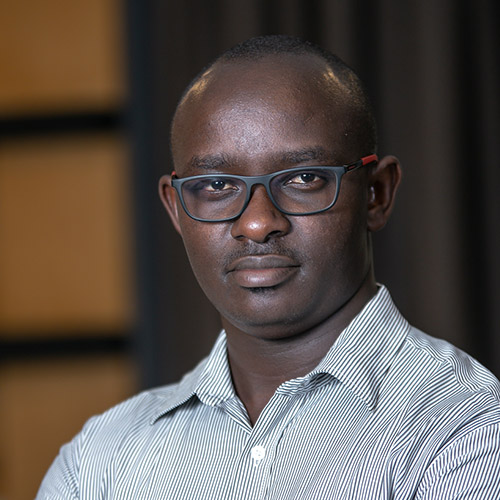
The AESA-RISE Postdoctoral Fellowship Programme is a scheme to support the training of postdoctoral researchers in Africa.
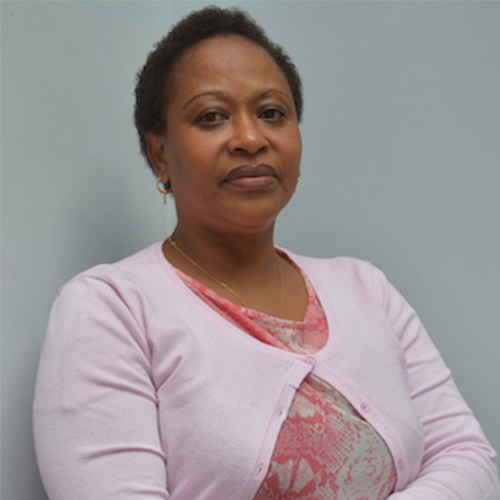 Gaymary George Bakari
Gaymary George Bakari Tanzania
Project - Formulation, validation and promotion of products from C. Swynnertonii resin
Gaymary George Bakari is a Senior Lecturer in the Department of Physiology, Biochemistry and Pharmacology in the College of Veterinary Medicine and Biomedical Sciences, Sokoine University of Agriculture. She completed her PhD at the Sokoine University in 2014 and her research work was titled “Biological activity of extracts from Commiphora swynnertonii against microbes of veterinary importance in chickens” which was funded by the Carnegie RISE -AFNNET Network.
Bakari’s area of interest is natural medicinal plants. She is currently supervising two PhD students who are working on two medicinal plants used to control rats and to treat small ruminants’ morbillivirus. Bakari has presented her research findings at several conferences and workshops in more than 18 peer-reviewed articles in reputable academic journals. Apart from teaching, she is also involved in research and mentoring more than 30 undergraduate and 10 postgraduate students.
Project - Formulation, validation and promotion of products from C. Swynnertonii resin
The project is developing an oral and topical formulations /products from C. Swynnertonii resin for medical and veterinary uses. This is a continuation of Bakari’s PhD work, which aims at adding value to C swynnertonii resin. Commiphora swynnertonii demonstrated to have significant activities against different microbes of veterinary and public health importance in different animal species. Furthermore, resin was shown to significantly reduce blood sugar and cholesterol.
Some of these findings corroborated well with what pastoralists and traditional healers claim as beneficial effects of using the resin. Given the promising findings from her previous studies, she is now conducting a study, in collaborations with a pharmaceutical company, to formulate topical remedies (ointments, lotion and creams) for treating wounds and skin conditions as well as oral preparation (soft gel/capsule) for controlling blood sugar and cholesterol. This study is anticipated to come up with production of tested patented and sellable products/remedies from C. swynnertonii resin.
Nigeria
Materials Science and Engineering
Host organisation & country:
University of the Witwatersrand, South Africa.
Titanium alloys particularly Ti-6Al-4V is considered the gold-standard material for making biomedical implants. However, implants made from this alloy are highly-priced and are not easily afforded by middle-and low-income earners in many developing countries. There is a need to develop cheaper alternatives to ensure that bodily functions are restored in people living with fractured bones and related disabilities. This has become more crucial since the United Nations report indicated that a larger proportion of older adults - aged 65 and above - will reside in developing countries by 2030. These adults are prone to bone fractures and many diseases. Dr Bodunrin’s research is centred on developing low-cost titanium alloys and providing the relevant scientific information that can be used for large-scale production of affordable implant components for middle- and low-income earners.
Grantee Description
Dr Michael Oluwatosin Bodunrin is a Senior Lecturer in the School of Metallurgical and Materials Engineering at the University of the Witwatersrand, Johannesburg, South Africa. He obtained his Ph.D. in Metallurgical Engineering, from the University of the Witwatersrand in 2018. Prior to this, he worked in the Department of Metallurgical and Materials Engineering, Federal University of Technology Akure, Ondo State, Nigeria.
Currently, Dr Bodunrin’s research activities focus majorly on developing efficient and affordable metallic alloys that can serve as the next generation of implant material in the biomedical industry. He is currently mentoring a number of young African scientists on research and innovation in the field of Material Science and Engineering. His broader research interests align with some of the United Nations Sustainable Development Goals, African Agenda 2063 and the South Africa national priorities.
He is passionate about using his research to enhance the general well-being of humans, reduce inequalities and foster responsible consumption and production. Apart from his research activities, he enjoys contributing towards science communication and science advocacy.
Project: Development of low-cost experimental titanium alloys for bioimplant applications
Low-cost experimental titanium alloys based on Ti-Al-V-Fe compositions were developed at incremental scales (from 10g to 4kg) by manipulating the alloy chemistry and optimising the parameters for forming and machining of the alloys. The low-cost experimental alloys are largely considered for land-based applications particularly for the biomedical industry. The experimental alloys were subjected to bulk and surface properties evaluation. The results were then compared to those obtained from Ti-6Al-4V, the most investigated and most utilised titanium alloy. The low-cost experimental alloys showed superior bulk and surface properties when compared to commercial Ti-6Al-4V alloy. Hence making them a very promising biomedical implant material. The scientific information provided on these low-cost experimental alloys would serve as a basis for manufacturing cheaper bioimplant materials that can serve middle- and low-income earners that may require implants for restoration of body functions. Additionally, South African huge titanium resource may create new opportunities in terms of downstream beneficiation and alloy development. This will create new economic and employment opportunities in the country.
 Gaolathe Tsheboeng
Gaolathe Tsheboeng Botswana
Project: Designing a monitoring system for riparian woodland vegetation in the Okavango Delta, Botswana
Gaolathe Tsheboeng’s research interests are in riparian plant ecology and management. Through his research, Tsheboeng aims to understand how flooding variation and land use affect species composition and distribution of riparian plant communities in the Okavango Delta. He holds a Bachelor’s degree in Education (Science), Degree of Master of Philosophy (MPhil, specialising in seasonal floodplain plant ecology) and Degree of Doctor of Philosophy (specialising in riparian woodland plant ecology) in Natural Resources Management. At the Okavango Research Institute,
Tsheboeng has been exposed to academic training which involved contemporary research methods. He has become proficient in the application of multivariate statistical techniques such as clustering and ordination to large data-sets. This is an invaluable skill in landscape ecology.
Furthermore, Tsheboeng has presented both his MPhil and PhD work in both local and International conferences. He has already published prolifically, with work in reputable refereed journals that include African Journal of Aquatic Science, South African Journal of Science, Journal of Forestry Research, Biodiversity and Ecology, Southern Forests and African Journal of Ecology. Locally, he has one of his papers published in Botswana Notes and Records Journal while another one is accepted for publication in Pula: Botswana Journal of African Studies. Tsheboeng also has some publications in conference proceedings. His other publications are in the form of Technical reports.
Tsheboeng worked as a Research Assistant in the Future Okavango Project, which sponsored his PhD studies and is supported by the German Federal Ministry of Education and hosted by ORI. The main focus of that project was mapping and inventorying woodland resources of the Okavango Delta. After completion of his PhD, Tsheboeng was employed as a Research Assistant in the research project on “Diversity, Population Structure and Regeneration Status of Riparian Woody Species Growing Naturally along the Thamalakane River, Northern western Botswana” funded by Forest Conservation Botswana.
Project: Designing a monitoring system for riparian woodland vegetation in the Okavango Delta, Botswana
Despite their importance, riparian woodland vegetation in the Okavango Delta is threatened by a large and increasing elephant population and by the degradation of human beings who clear the land for agriculture. As a result of these progressing anthropogenic activities, the riparian woody vegetation may shrink and degrade. Therefore, the current study aims to design a monitoring system which will provide early warning information on the degradation of riparian woodland vegetation in the Okavango Delta.
This project aims to develop the monitoring system for the change in riparian woodland vegetation in the Okavango Delta. Monitoring land cover change will help to guide policy on conservation of woodland resources and provide early warning information on its degradation. It will also ensure that there is sustained flow of services and benefits that are derived from the riparian woodland vegetation.
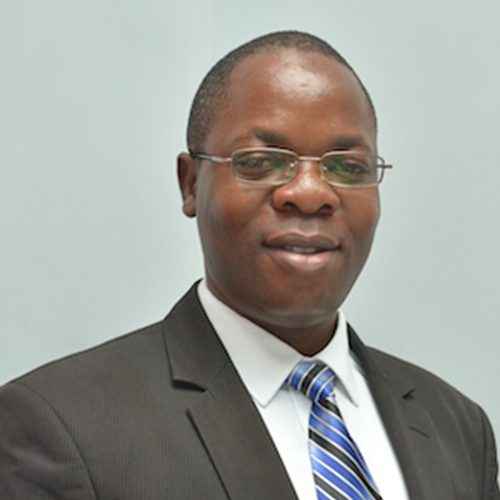 Benjamin Kumwenda
Benjamin Kumwenda Malawi
Project- Investigating the prevalence of Lineage 2A Salmonella in Malawi
Benjamin Kumwenda is a Malawian and a Lecturer in Bioinformatics at the University of Malawi’s College of Medicine. He holds a BSc Degree in Computer Sciences from the University of Malawi’s Chancellor College obtained in 2001. He also has an Honors Degree in Computer Sciences and an MSc Degree in Computer Sciences obtained in 2006 and 2008 respectively from the University of the Witwatersrand in Johannesburg, South Africa. He graduated with a PhD in Bioinformatics from University of Pretoria in April 2014 funded by RISE. Since then, he has been a Postdoctoral Research Fellow with the Malawi-Liverpool Wellcome Trust from 2014 to 2015 funded by the H3Africa Bioinformatics Network (H3BioNet). In 2016, he was awarded the UK’s Medical Research Council African Research Excellence Fund (AREF) Postdoctoral Fellowship and was based at the University of Liverpool, Institute of Integrative Biology in Hinton Lab.
He is also an awardee of the RISE Graduate Competitive fund through which he established the Bioinformatics research team and an MSc in Bioinformatics at the College of Medicine in Malawi. He currently heads the Biomedical Sciences Department at the College of Medicine in Blantyre Malawi. His research interests are in the pathogenesis of Salmonella and understanding drug resistance in human pathogens.
Project- Investigating the prevalence of Lineage 2A Salmonella in Malawi
A novel type of Salmonella has evolved in Africa, and is now causing a serious epidemic responsible for hundreds of thousands of deaths each year. The key pathogen is a bacterium known as Salmonella Typhimurium ST313. Genomic analyses have revealed that the multidrug-resistant Salmonella isolates have evolved into distinct genetic lineages that have only been seen in sub-Saharan Africa. First, Lineage 1 was responsible for invasive Non-Typhoidal Salmonella (iNTS) disease. Then, Lineage 2 replaced Lineage 1 in about 2002, and is causing a more serious disease associated with increased antibiotic resistance. We have evidence that a new lineage (2A) emerged in Africa in 2006, and is now responsible for high levels of infections. However, we know very little about Lineage 2A, and this work investigates why Lineage 2A is becoming more prevalent among patients in Malawi.
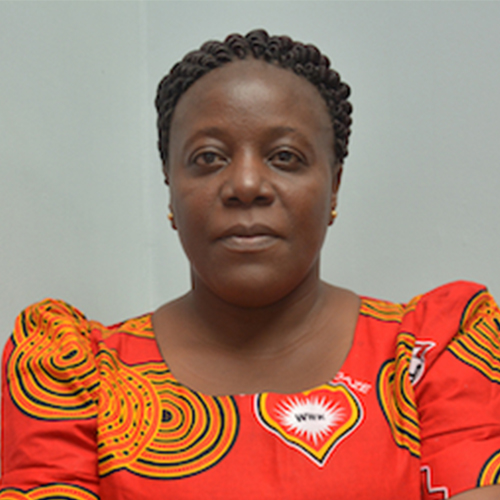 Faith Philemon Mabiki
Faith Philemon Mabiki Tanzania
Project- Valorization of potentials of Synadenium glaucescens (SG), phytochemicals for management of important human and animal diseases
Faith Philemon Mabiki received a Bachelor of Science (BSc), majoring in Chemistry and Microbiology in 2002 at the University of Dar es Salaam in Tanzania, a Master of Research in Clean Chemical Technology (Green Chemistry) from the University of York in the UK in 2007 and a PhD in Natural Products at Tanzania’s Sokoine University Agriculture in 2013. She has been trained at the German Bioresources Centre on chemicals from bioresources, specialising on biogas production from plant wastes.
She has also been trained in the United Kingdom and Kenya on the use of analytical instruments and techniques for natural products analysis and identification, which include HPLC and GCMS. Mabiki teaches undergraduate and postgraduate courses and supervises research and special projects at Sokoine University of Agriculture in chemistry. Mabiki is a very active academic and researcher having published more 15 papers and three book chapters and successfully applied for three patents. She has supervised more than of 20 special undergraduate projects, 8 MSc and 5 PhD students. She is member of various institutional, national and international organisations that include the Tanzania Chemical Society, Royal Society of Chemistry (UK) and Natural Products Research Network of Eastern and Southern Africa (NAPRECA).
Project- Valorization of potentials of Synadenium glaucescens (SG), phytochemicals for management of important human and animal diseases
The project involves valorising some formulated SG phytoproducts, a medicinal plant which is traditionally used in Tanzania for treatment of some human and animal diseases. Her project arises from patents she obtained during her PhD on antimicrobial, antiviral and antifungal capacity of the extracts from the plant. Through this project, the products which are Syna soap, Syna syrup and Syna cream will be studied. In order to add value of these products the mixed compounds that contribute to their activity against Skin fungal infections and coughing will be identified and tested for their proper doses. This will contribute to proper labelling and packaging, which will build more confidence to customers when buying the products.
Furthermore, a method to check their quality will be developed and validated for their quality control. Capacity building on formulations of phytoproducts, screening, testing, judicial use of medicinal plants and quality control will be done to post-graduate studies, technical, academic staffs as well as traditional healers. This will ensure the continuity of flow of knowledge and will enhance the commercialisation of Syna products. Generally, the project will contribute to smooth entry of Phytoproducts into both the local, regional and international market in Tanzania.
The immediate output will include five publications in peer review journals, 15 compounds characterised and tested, a capacity building workshops, a community of practice and characterised products with proper packaging and labelling ready for market entry.
Uganda
Project: Bioactivity and chemical investigation of natural products composition from selected plants used in skin infections and protection
With the emerging bacterial resistance to antimicrobials in skin infections and reported skin cancer cases, especially in neglected minority groups like albinos, there is need for cheap, readily available, and effective therapeutic agents that can combat resistant skin bacterial strains and prevent skin conditions that develop due to the Ultraviolet (UV) exposure. This project has advanced knowledge by revealing bioactive compounds from plants that can be used as chemical markers in herbal skin care formulations and led to the discovery of drugs that can be used in the treatment of skin infections.
Grantee Description
Dr. Jane Namukobe is a lecturer and researcher at the Department of Chemistry, Makerere University, Uganda. She obtained her Bachelor of Science, Master of Science, and a Ph.D. in Chemistry from Makerere University. Dr. Namukobe has over 10 years of experience in teaching and research and her vision is to nurture the next generation of African scientists to grow and advance in their academic and research careers.
Driven by her enthusiasm for research in natural products chemistry, Dr. Namukobe has received multiple awards to work on research focused on drug formulation and drug discovery from medicinal plants. She has published journal papers in peer-reviewed journals. Her current research focuses on screening plants for their antibacterial, antioxidation, and sunscreen potentials as well as isolating and identifying their bioactive compounds.
Project: Bioactivity and chemical investigation of natural products composition from selected plants used in skin infections and protection
Skin diseases are very common in many developing countries and have a serious impact on people’s quality of life, causing lost productivity at work and school, and discrimination which may lead to psycho-social problems, especially in the neglected minority groups like the albinos. Many people develop skin conditions due to UV exposure (skin cancer), and bacterial infections.
With the emerging bacterial resistance to antimicrobials in skin infections, there is need to search for novel chemotherapeutic agents to combat the resistant bacterial strains. Besides, artificial sunscreens are expensive, purported to cause cancer, and sometimes break down and become less effective. In Uganda, many plants used to treat skin diseases have been documented but their efficacy, toxicity, and chemical constituent are not known, and this hinders their formulation and development into drugs. This project aims to identify and chemically characterize bioactive metabolites from plants with antibacterial, antioxidant, and sun protection potentials.
This project anticipates advancing knowledge by discovering bioactive compounds that can be used as chemical markers and act as leads for the discovery of drugs for skin infection and protection from UV radiation.
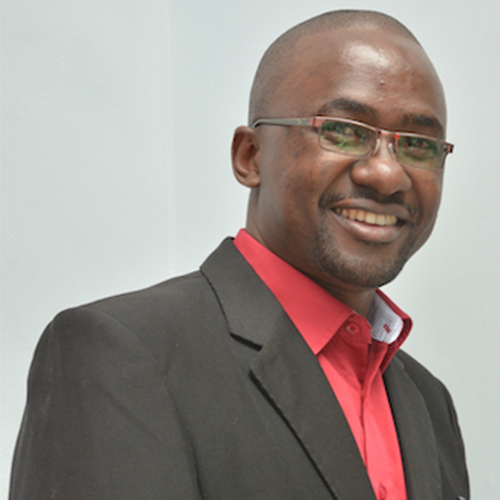 Dominic Omosa Ochwang’i
Dominic Omosa Ochwang’i Kenya
Project- Complementary anticancer therapy using medicinal plants: from molecular characterisation to preclinical testing
Dominic Omosa Ochwang’i holds a Bachelor’s degree in Veterinary Medicine from the University of Nairobi acquired in 2007 and is a registered veterinary surgeon with the Kenya Veterinary Board. He was awarded a University of Nairobi Scholarship and Academic Research Enhancement Award by Western Kentucky University as a visiting research scholar, USA in 2008 for a MSc in Comparative Mammalian Physiology and graduated in 2011. Ochwang’i was then employed as a Tutorial Fellow in the Department of Veterinary Anatomy and Physiology, Faculty of Veterinary Medicine, University of Nairobi. He graduated with Doctor of Philosophy (PhD) in September 2017 with a dissertation in “Pharmacophysiological anticancer potential of medicinal plants used in Kakamega County in Kenya” under the Regional Initiative for Science and Education (RISE AFNNET) PhD scholarship programme.
During his PhD project, he acquired diverse molecular techniques as a visiting research scholar at the Institute of Pharmacy and Biochemistry, Department of Pharmaceutical Biology, Johannes Gutenberg University, Mainz, Germany. He has published in internationally peer reviewed journals and has interests in cell signaling and gene expression, molecular biotechnology, cancer therapeutics, natural products research and Comparative Physiology. He is currently a Lecturer in the Department of Veterinary Anatomy and Physiology at the University of Nairobi, Kenya.
Project- Complementary anticancer therapy using medicinal plants: from molecular characterisation to preclinical testing
Cancer is a disorder involving unregulated cell growth characterised by uncontrolled cell division that results in the formation of tumors that may metastasize to invade other parts of the body. Current standard treatment regime includes chemotherapy, radiotherapy and surgery. Effectiveness of chemotherapy is often limited by toxicity to other non-target tissues in the body, multidrug resistance and high costs. There has been a therapeutic paradigm shift with consideration for alternative low cost therapies from medicinal plants. Ochwang’i seeks to investigate the anticancer potential of selected Kenyan medicinal plants through evaluation of their effects on breast, prostate, leukemia, colon, glioblastoma, cervical and esophageal human cancer cell lines selective cytotoxic viability, molecular gene expression profiling, pre-clinical in-vivo testing in mice cancer xenografts and active dog cancers.
The present study intends to scientifically validate the anticancer effects of the selected medicinal plants extracts and identified molecules for therapeutic efficacy assurance. It is envisaged that the outcome of this work will be a validation of use of medicinal plants as an alternative and complementary source of cancer therapy.
We intend to engage Traditional medical practitioners (TMPs) as stakeholders for this innovative approach for the development of natural products for local indigenous community consumption as well as industry development and potential commercialization. This will primarily provide a standard for medicinal plant use and also reduce treatment cost of cancer in the human population.